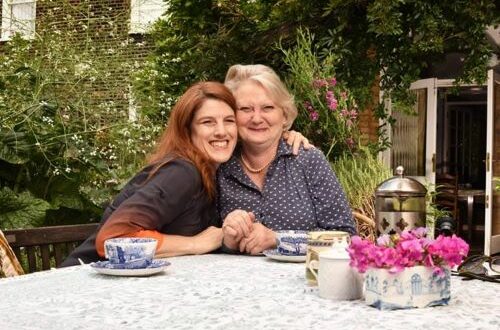
Would Jesus turn #MeToo into #UsTwo?
I came home pumped!! My friend Barb led our mixed Sunday School through a fresh look at the leadership partnership between Deborah and Barak (Judges 4 and 5) as part of an eight week series entitled "Fresh Perspectives on Women of the Bible." The week before, we saw Jesus praise the woman at the well for evangelizing her Samaritan village, a people group the disciples formerly discounted as unworthy of salvation (John 4). For the first time, these two women jumped off the page in living color as role models for other women to emulate. We set aside the over-sexualized interpretations too often imposed on the text and let the account speak for itself. It made me wonder if Jesus would turn the sad #MeToo #ChurchToo movements for Christians into a far better #UsTwo?
The #MeToo #ChurchToo movement has led to a positive awakening which I hope will result in healthier interaction between men and women, but I've always been concerned about a possible backlash which might further alienate and separate men and women from honorable interactions and partnerships. We're already seeing a backlash brewing.
Consider this excerpt from "Why In The World Would Men Stop Mentoring Women Post #MeToo" by Prudy Gourguechon, Forbes.com, August 6, 2018.
A Pew Research Center survey asked respondents whether they thought that the recent focus on sexual harassment had made it harder for men to know how to interact with women in the workplace. Fifty-one percent said yes.
SourceMedia reports on trends in the financial industries. Respondents to their recent study on attitudes towards sexual harassment in the workplace voiced concern that women would be excluded from work situations “in order for men to protect themselves.”
A darker prediction was made by a woman in her 30’s: “Corporations will discriminate against females and start hiring only male employees since it creates a less problematic environment.” One senior leader in the banking industry reported that several male colleagues had told her they were reconsidering mentoring women.
What's one way to avoid this backlash in Christian communities? How can we encourage men and women to work together as brothers and sisters in the family of God instead of competing or fearing one another? One way might be for men and women to take a fresh look at women of the Bible.Our class seems to be experiencing this positive dynamic through the teaching and discussions in my Sunday School after just two weeks into the "Fresh Perspective on Women of the Bible" series. What might God do in eight weeks of deep insightful digging into the lives of women of the Bible? I'm incredibly grateful for the many male leaders in our class who encouraged this series.
We've formed a team of seven women to teach the series. They include two extremely bright DTS seminary students, Millennials Natalie and Lindsay Ann; two gifted graduates, another Millennial Grace and GenXer Julie; two women who've taught the Bible for years, Boomers Barbara H. and Barbara F.; and one Boomer seminary professor, myself. From over the 150 named women in the Bible, our line-up includes Deborah, Bathsheba, Esther, Mary and Martha, Eve, Priscilla, Phoebe, Tamar, and one unnamed woman, the Samaritan woman at the well.
Too often to understand women's "roles" we've limited our study to three "problem passages"–1 Corinthians 11 and 14 and 1 Timothy 2. These texts certainly must inform our conclusions but I was taught in seminary never to base an important doctrine on unclear passages. One will look hard to find more muddy, conflicting passages than these three. In addition, valid scholarship always attempts to see the parts of Scripture within the whole, so it's important that we also thoroughly study other passages about women to glean God's "big picture".
It's also vital that women of the Bible be interpreted with the same rigorous scholarship we afford other texts, but, in my opinion, for centuries that kind of scholarship has often been lacking. As a result, the accounts of women often come off as shallow, scant, one dimensional, and are even sometimes misinterpreted. And we have quickly placed women in the temptress, bad girl category without digging into the cultural societal situations which may explain why some of them don't belong there.
Why has the scholarship been lacking? It's understandable. If you are a man preaching and leading, stories about women in the Bible might not peak your interest as much as accounts of courageous men of valor, male spiritual giants, men who founded churches, or even men who messed up–much to be learned even from their mistakes. It's natural that these men would see the Bible through a male lens and assume everyone else does too. Except that the cardinal rule in communication is "know your audience" and over half the audience is female. But now that women are in seminaries and learning the original languages for themselves, now that they occupy a place at the table, they are there to suggest other possible interpretations that male scholars might unintentionally miss. The result, fresh, rich insight often resulting in much needed positive role models for Christian women. What a gift!
Would you benefit from hearing from our team on these women? I'd love to invite them to guest blog over the coming months so you might benefit from their "fresh" perspectives. They are trained godly women without an agenda, women who honor men and simply desire to support and work beside them within biblical parameters. If so, let me know.
In the mean time consider this fascinating read–"Vindicating the Vixen's, Revisiting Sexualized, Vilified, and Marginalized Women of the Bible". Editor Dr. Sandra Glahn gathered a group of gifted scholars to write a chapter on a misunderstood woman in the Bible.
Jesus called men and women to live and serve as brothers and sisters in His family. Maybe He'd be pleased if we turned #MeToo #ChurchToo into #UsTwo for His glory instead of segregating ourselves even more. You might be surprised to learn how many men and women in the Bible ministered together in healthy godly partnerships for their joy and God's glory.




